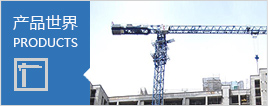Air pollution in China has not shown signs of improvement, and its impact has also affected the business of Japanese companies in unexpected forms.
Tetsuji Ohashi, president of Komatsu Corporation, revealed that "the operating rate of mining machinery used in China's coal mines has not picked up." Komatsu can check the operation status of machines sold to customers in real time through the information collection technology "KOMTRAX" installed in the company's mining machines.
There are numerous small-scale coal mines in China. These coal mines use 30-40-ton small mining machinery that is not used in other countries. The president of the bridge speculates that these small coal mines may have been affected by environmental protection measures introduced by the government.
This phenomenon is closely related to air pollution represented by PM2.5. There are many reasons for PM2.5. In cities, increasing vehicle exhaust is one reason, and another is coal. Sulfur oxides are produced when thermal power stations and industrial boilers burn low-quality coal with more impurities such as sulfur. And these sulfur oxides will react in the atmosphere to form PM2.5.
The call to "reduce low-quality coal"
The air pollution control measures released by the Chinese government in September 2013 included a number of elements aimed at reducing dependence on coal. Local governments such as Beijing have also proposed policies to reduce the amount of coal burned in order to reduce PM2.5, while controlling the amount of low-quality coal used.
How will the government's policy affect the market? This has become the focus of close attention of construction companies such as Komatsu. After all, it's not clear to everyone whether the government is here "for real" this time, or whether it's just a formality.
Over the past few years, many coal mines in China have been the target of public criticism. This is not only because there are too many coal mines, resulting in an oversupply, but also because of the frequent and serious fatal accidents in coal mines. Small coal mines are dotted around and it is difficult to ensure that they comply with the safety and environmental protection measures of the central and local governments.
China has long shut down small, low-quality coal mines and restructured coal companies. But local coal mines have now become the basis for employment and taxation. For ordinary people and small and medium-sized enterprises, low-priced coal is a precious energy source that cannot be easily given up.
This time, can China take the extremely serious PM2.5 problem as an opportunity to promote the "freeing from coal dependence" that has been slow to make progress in the past? This has become the focus of attention from all walks of life.
The Chinese market is picking up, and there is a crisis behind it
Komatsu lowered its forecast for fiscal 2013 (ending March 2014) at the end of October 2013. The reason is that the demand for mining machinery continues to be sluggish, centered on Indonesia. For the company, driven by the demand for reconstruction from the Great East Japan Earthquake and the Tokyo Olympics, the Japanese market is promising, and the recovery of the Chinese market is also a good news in fiscal year 2014.
The president of the bridge said cautiously, "Although the number of approved construction projects of a certain scale is increasing, local governments have debt problems and difficulties in funding. The future recovery of the Chinese market is not expected to be a fast straight line. Upward trend. We first have to wait until after the Spring Festival at the end of January to observe market trends.” However, since the summer of 2013, orders have rebounded significantly compared with the previous year, and the company has high hopes for a comprehensive recovery.
Under such circumstances, PM2.5 brought an unexpected impact. Komatsu's main business in China is construction machinery used in infrastructure construction, and mining machinery business accounts for a small proportion. The government's environmental regulations on coal mines will not have a material impact on the company's performance.
The construction machinery market is not as susceptible to political influences in China and Japan as Japanese cars. On the other hand, the Chinese government's policies, such as infrastructure investment, energy policy and environmental protection measures that will continue to be introduced in the future, will directly affect the demand in this market.
The growing PM2.5 problem is no longer just China's own environmental problem. A spate of measures by the Chinese government has begun to affect a wide range of industries. Komatsu's current situation faithfully reflects this. (Author: Kumano Shinichiro, Nikkei Technology Online! Contribution)





